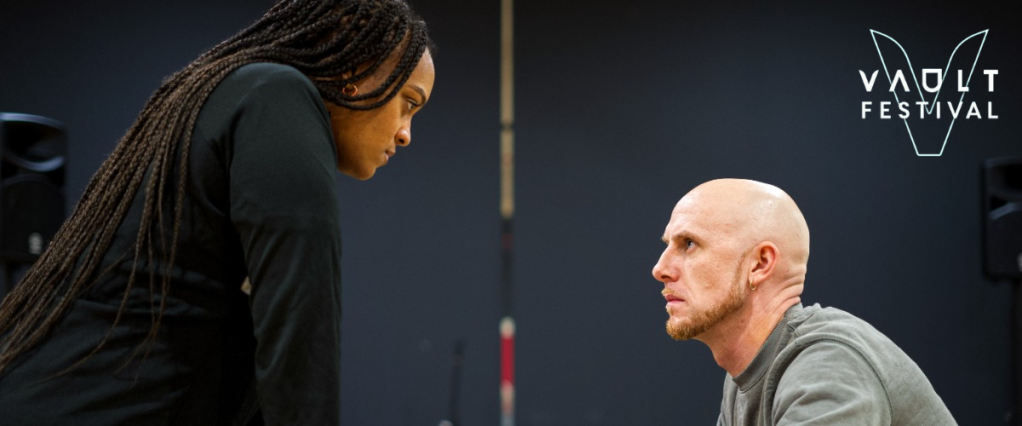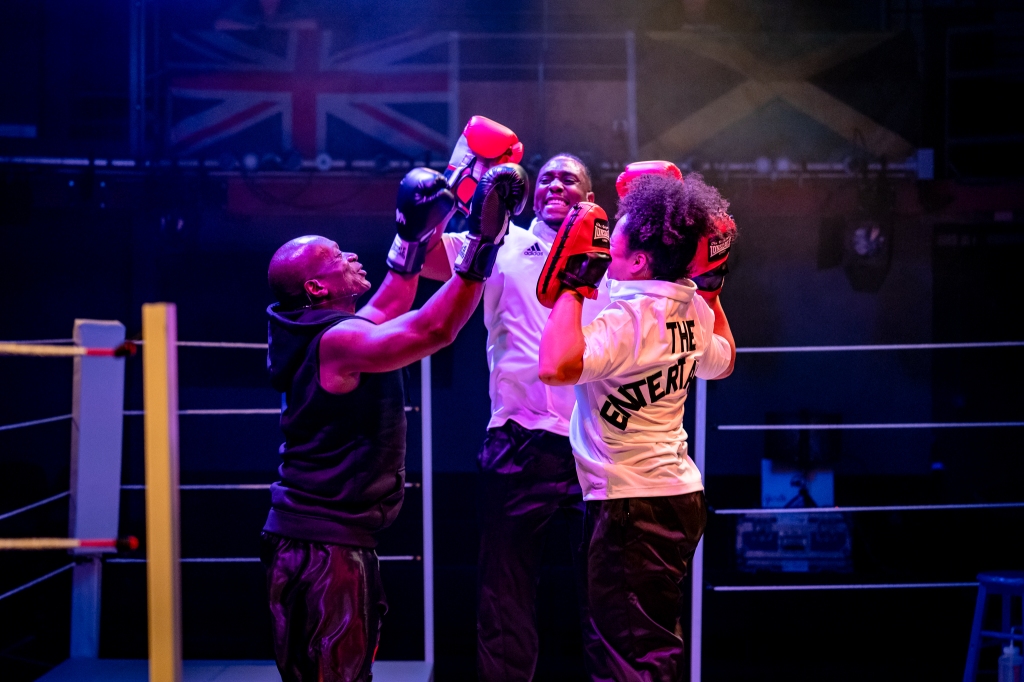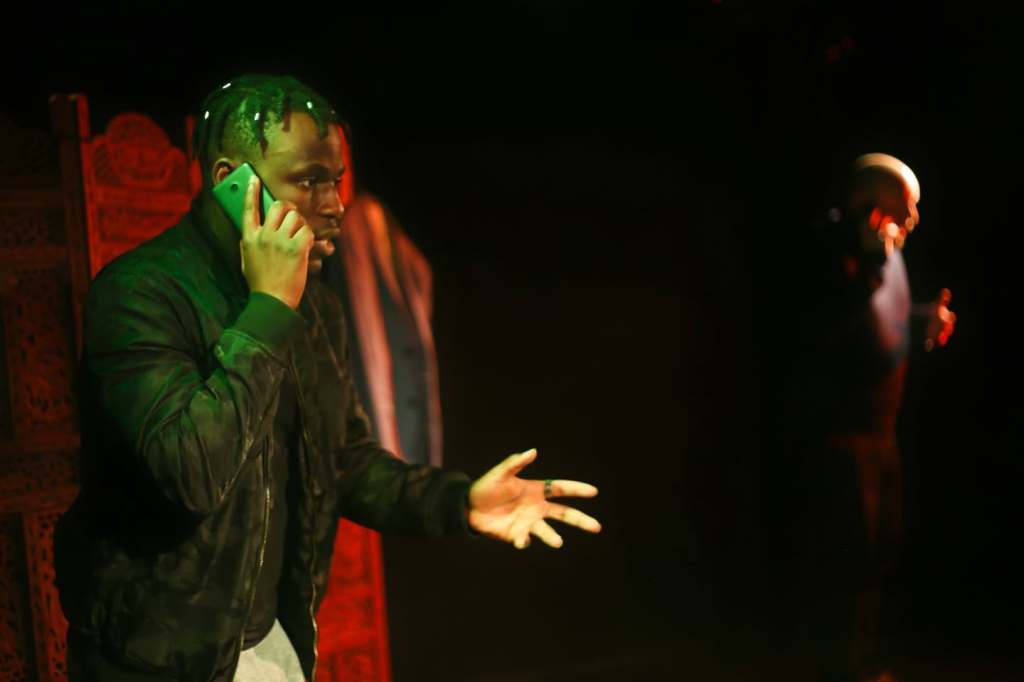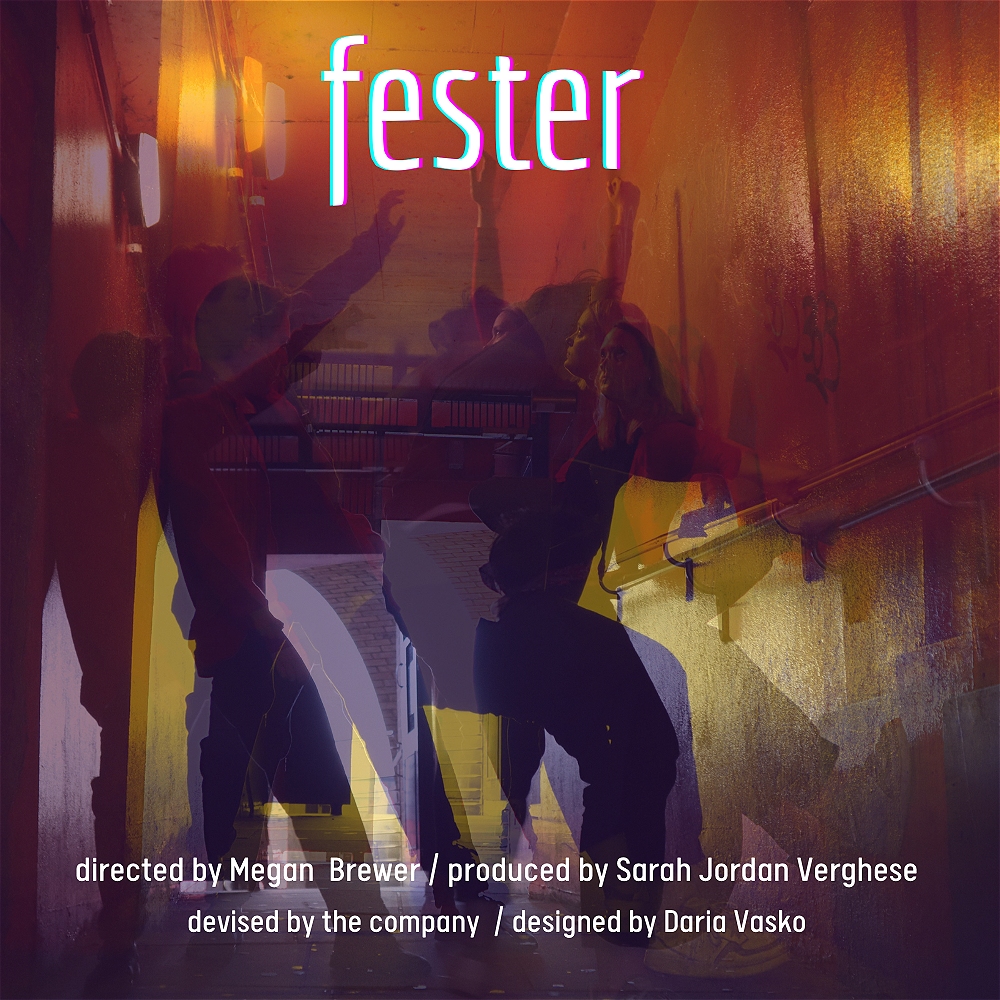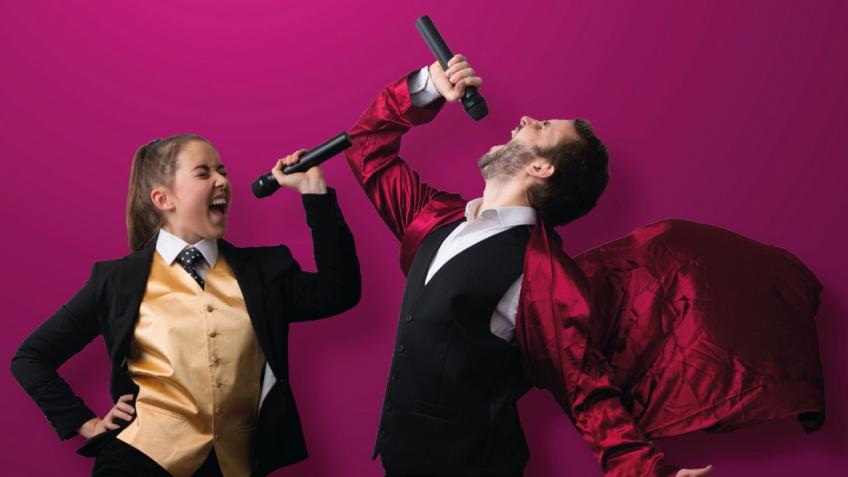
Callum Hughes: Thirst, Studio

Star Rating: ⭐️⭐️⭐️⭐️⭐️
Pure magic from start to finish, one of the most incredible storytellers we’ve every seen.
Callum Hughes’ Thirst is the perfect blend of music, storytelling, comedy and purpose. Navigating Callum’s relationship predominantly with alcohol, secondarily his relationship with music and performing, it tenderly comprises of stories from childhood, up to just a few years ago. Hughes dextrously weaves known and original music into this autobiographical tour-de-force, as well as underscoring his own storytelling, creating a beautiful and eclectic soundtrack to his life so far. Perceptively capturing both a sense of his thoughts and feelings in those moments, as well as providing an elucidation on his character, relationships, influences and background.
Dealing mostly with alcoholism, concluding with how Callum nearly joined the 27 Club a few months ahead of his 28th birthday, the direct result of his reliance on alcohol and ability to convince himself that his intake was normal. It is through this stark storytelling that, Hughes’ delivers both an honest and impactful piece that is sincere and meaningful, but ultimately not too heavy, as it is equally full to brim with light comedic moments, and a much-appreciated conversational approach. The piece does wonderful job of shedding light upon sobriety, something few are willing to talk about, or see little need for, Hughes’ excellently de-stigmatising it. Callum’s intake is initially influenced by pub culture and goes unchecked by himself as he becomes known for being a bit of a boozer and uses it as a coping mechanism for feeling a bit down. He experiences some gentle warnings from friends and family, but interprets them as out of proportion. The way this is communicated expedites his experience perfectly, in a tangible and entertaining way.
Leaving the audience with an impactful insight into alcoholism and sobriety. Hughes is also an incredibly charismatic performer, as well as a stellar musician, he holds the audience in the palm of his hand from the off and creates this safe space, that feels laid back and almost like being in the pub with mates (even when you’re not), it’s fun, nostalgic, musically inviting and simply wonderful!
Callum Hughes: Thirst is on at VAULT Festival until Sun 29th Jan, or on tour. Click here to book now.
Writer/Performer: Callum Hughes
Co-Directors: Roann Hassani McCloskey & David Shopland
Producer: Fake Escape
Marketing and Design: David Shopland
PR Consultant: Annie Abelman
Love’s A Beach, Cage

Star Rating: ⭐️⭐️⭐️⭐️⭐️
Side-splittngly good fun!
Katie Sayer and Will Johnston‘s exposé on influencer culture is a Gen Z theatrical feast and masterclass in comedy writing. The show imagines the life of an influencer power-couple who, having been runners-up in a popular TV dating show (cough, cough Love Island – although not explicitly named), are trying to navigate both their relationship. 6 months after being on the show together and, the varied options of brand deals / opportunities that derive from their large followings and TV exposure. Cyrus and Ben, the LGBTQ+ couple and protagonists couldn’t be more different in their views and approaches to social media and influencing, delving deep into the pressures of keeping up follower counts, the competitive nature of staying relevant and having a moral stand-point on brand promotions. With as many twists and turns as a modern tabloid media circus, Sayer and Johnston’s piece is a satirical triumph, coupled with Phoebe Barrett‘s expert direction, the hilarity doesn’t stop.
When Cyrus is offered a golden opportunity, in the form of a one-month influencer trip with Sam to Dubai in order to promote a hotel chain, Sam is the only one who sees the obvious issue with them taking up the opportunity, whilst Cyrus is absorbingly focussed on growing his follower count up to, and beyond 1 million, whatever it takes. Making the piece, not just a barrage of comedy, but also intuitive of today, from its commentary on the LGBTQ+ experience, to the cut-throat nature of online relevancy and the fragility of public image, particularly how it can be manipulated and is constantly dissected by the masses online. Segueing perfectly in the design, as sound bites of a chorus keyboard warriors, tabloid views and gossip blogs, expertly weave the piece together, doing much to insinuate the dangerous and efficacious nature of social media and how opinions voiced behind a screen can be insensitive and radicalised.
Performance-wise, James Akka (Cyrus) and Iain Ferrier (Sam) are the top of their game. Akka has impeccable comedic timing, whilst their talent for physical and facial comedy is certainly something to be jealous of here. Ferrier is the perfect foil to Akka, equally as quick-witted and engaging, they are a robust performer, able to bounce off the flamboyance of Akka, effortlessly creating a diametrically-opposed and more down-to-earth character, the ideal contrast. And both are clearly names to watch out for in the future.
Writers: Will Johnston and Katie Sayer
Cyrus: James Akka
Ben: Iain Ferrier
Director: Phoebe Barrett
Technical Director: Sam Frakes
Intruder | Intruz, Network Theatre
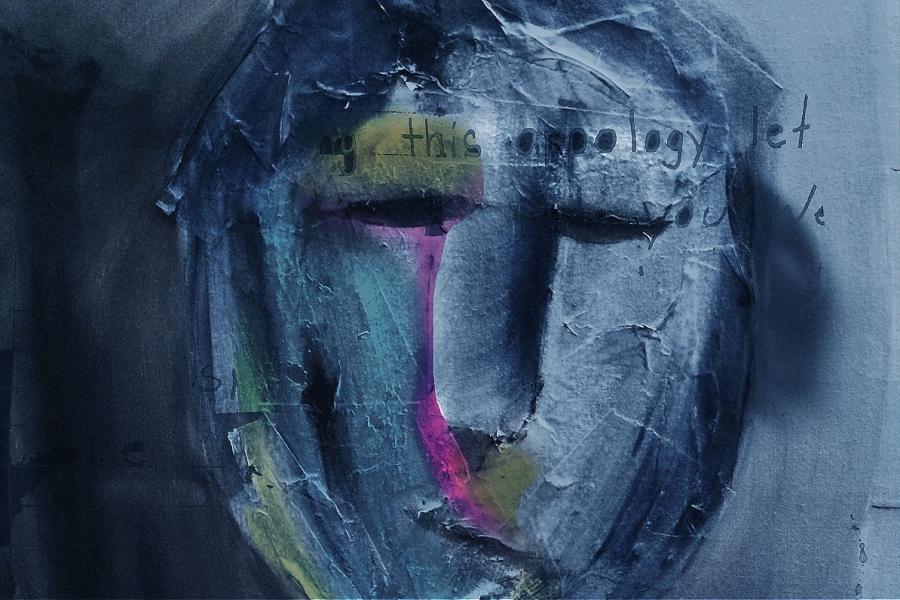
Star Rating: ⭐️⭐️⭐️1/2
Intruder | Intruz is one of the strongest one-man performances you will ever see. This bilingual, autobiographical storm is one man’s journey through trauma, PTSD snd forgiveness. Told from Remi’s own perspective, by himself, in his native language, (Polish) and in English, the piece uniquely time hops, and bounces between Scotland and Poland, charting Remi’s life before and until he reaches his ambition to be an actor.
Although the piece is so fast-paced and at times, disjointed, making it hard to navigate at times, requiring those who only speak one of the two languages, to follow it partially based on tone and action alone, Remi Rachuba is simply a spell-binding performer and it is difficult to truly feel lost with them guiding you through it. Rachuba captures the vulnerability of a victim, the PTSD and embarrassment involved in experiencing trauma eloquently and powerfully, he also shades this to perfection with humour and warmth in the delivery. Whilst Rachuba’s writing is equally as raw, brutal, combative and filled with intelligence, we feel as if we are right there with him in his consciousness as he processes events and battles with fear. In fact there is so much there, it can feel like an overload at times.
Marcus Montgomery Roche‘s direction is inspired, they keep the energy up and the story flowing, navigating a complex web of events and mental triggers with ease. The design compartmentalises these events and triggers into an array of shoes, some becoming indicative of characters, helping Remi’s sporadic mental processing of the attack become more tangible.
Overall Intruder | Intruz is not light watching, it is challenging and complex, but it is also incredibly unique and a story well-worth telling. Whilst Remi Rachuba is a star.
To keep up to date with Intruder | Intruz click here, on again at VAULT Festival Sun 29th Jan.
Actor/Writer/Producer: Remi Rachuba
Director: Marcus Montgomery Roche
Set and Costume Designer: Basia Bińkowska
Lighting and Sound Design / Show Op Technician: Charles Webber
Poster Design: Cindy Derby
For a Brief Moment and Never Again Since, Pit

Star Rating: ⭐️⭐️⭐️1/2
Judi Amato‘s writing provides a solid exploration of a relationship, weaving in the joy from its beginnings, to its challenges and its final fizzling conclusion. Demonstrating the best and worst of Owen and Sarah and the couple’s best and worst moments, Amato does a wonderful job of exploring criminal incarceration from both the offender’s and their family’s perspective. Doing much to elucidate upon the complexities of relationships caught up in the judicial system and the strain it causes from both sides, particularly the negative stigma faced by the family, socially punished for a crime they didn’t commit.
Stylistically, the piece is fantastic. Lisa Miller‘s direction is clear and concise, the physical theatre moments do much to break the piece up and convey the character’s frustration. Performed dextrously by Monique Anderson (Sarah) and Peter James (Owen) who are both excellent actors and physical performers. The work is also performed in the round and does much to envelope the audience into this world of Owen and Sarah. Whilst the design, is incredibly performative, the central green circle within which much of the piece is performed, becomes indicative of the couple’s entrapment from Owen’s physical incarceration, to their marriage and also Sarah’s tarnished reputation and need to escape to something better. Whilst the large baby mobile above their heads is a dreamworld, that they simply cannot get to, suggestive of Owen’s crime, which keeps them from a better life and also, the baby girl, they perhaps didn’t intend to have, but that they both cherish dearly, she is the one thing at the end that still ties them together.
If work is done to develop the characters further and streamline some of the dialogue, showing more tender moments of the couple’s deep love for each other in the beginning of their relationship, in order to contrast the shouting and toxicity, the piece would become more affecting and apperceptive, but as is, it shows great potential and an eye for untold stories.
For A Brief Moment And Never Again Since is on again on Sun 29th Jan or at Greenwich Theatre in February.
Writer & Producer: Judi Amato
Director & Dramaturg: Lisa Miller
Set Design: Damien Stanton Light
Lighting Design: Marie Colahan
Cast: Monique Anderson & Peter James
